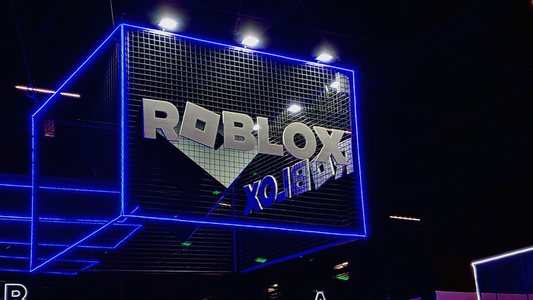Understanding Game Obfuscation
Game obfuscation refers to the process of deliberately making game code and assets difficult to understand or reverse-engineer. By transforming readable code into a convoluted version using an offuscator, developers can effectively obscure critical functions and data. Modern obfuscators and offuscators employ a variety of techniques—from renaming variables to altering control flow—all aimed at thwarting attempts to decipher or tamper with the game's core logic. With a dependable offuscator, game developers ensure that their intellectual creations remain safe from theft and manipulation.Why Obfuscate Game Code?
Several compelling reasons drive developers to employ obfuscation techniques, typically with the help of a dedicated offuscator solution:▪ Intellectual Property Protection: Prevent unauthorized copying or reuse of proprietary game logic and algorithms by implementing an offuscator to disguise code structure.
▪ Security Enhancement: Shield the game from malicious modifications that could introduce vulnerabilities or cheats, with offuscators adding an extra layer of defense.
▪ Revenue Preservation: Deter piracy and unauthorized distribution, safeguarding potential revenue streams through asset and code protection offered by a robust offuscator.
▪ Competitive Advantage: Maintain a technological edge by concealing unique implementations and features, made possible with a strategically deployed offuscator.
Key Techniques in Game Obfuscation
Obfuscation encompasses various strategies, each targeting different aspects of the game's code and assets:▪ Code Transformation: Altering the structure of the code without affecting its functionality, making it harder to interpret.
▪ String Encryption: Encrypting readable strings to prevent easy access to sensitive information.
▪ Control Flow Obfuscation: Modifying the logical flow of the program to confuse reverse engineers.
▪ Dummy Code Insertion: Adding non-functional code to mislead and complicate analysis.
▪ Asset Encryption: Encrypting game assets like images, audio, and models to prevent unauthorized extraction.
JavaScript Obfuscation in Game Development
With the rise of web-based and HTML5 games, JavaScript has become a prevalent language in game development. Consequently, JavaScript obfuscation has gained prominence as a means to protect client-side code.Popular JavaScript Obfuscators
Several tools are available to obfuscate JavaScript code effectively:▪ JavaScript Obfuscator: A free online tool that transforms JavaScript code into a version that's difficult to read and reverse-engineer. It supports various features like variable renaming, string encryption, and control flow flattening.
▪ Jscrambler: A professional-grade obfuscation tool that offers advanced protection mechanisms, including code locks, self-defending code, and real-time monitoring.
▪ JSDefender: A robust solution providing comprehensive obfuscation and in-app protection for JavaScript applications.
Integrating JavaScript Obfuscation via API
For automated workflows, developers can utilize JavaScript obfuscator APIs. These APIs allow seamless integration of obfuscation processes into build pipelines, ensuring that code is obfuscated during deployment without manual intervention.Obfuscation in Unity Game Engine
Unity, a widely-used game engine, offers various avenues for implementing obfuscation and encryption to protect game assets and code.AssetBundle Encryption
Unity's AssetBundles are packages of assets that can be loaded at runtime. To protect these assets:▪ Custom Encryption: Developers can encrypt AssetBundles using algorithms like AES and decrypt them at runtime before loading.
▪ Build Script Integration: Incorporating encryption processes into build scripts ensures that AssetBundles are encrypted during the build phase.
▪ Third-Party Tools: Tools like UnityCN-Helper facilitate the encryption and decryption of AssetBundles, streamlining the protection process.
Mono Assembly Obfuscation
Unity games often rely on Mono assemblies for scripting. Obfuscating these assemblies can prevent decompilation and reverse engineering:▪ Obfuscation Tools: Utilizing obfuscators that support .NET assemblies to transform the Intermediate Language (IL) code.
▪ Code Obfuscation: Renaming classes, methods, and variables to non-meaningful names, making the codebase harder to navigate.
▪ Control Flow Alteration: Changing the execution flow to obscure the logical structure of the code.

Obfuscation in Cocos Game Engine
Cocos, another popular game engine, also provides mechanisms for obfuscation and encryption to protect game assets and scripts.Resource Encryption
Protecting resources in Cocos can be achieved through:▪ AES Encryption: Encrypting assets using AES and decrypting them at runtime to prevent unauthorized access.
▪ EncryptManager: A tool that manages the encryption and decryption of assets without requiring engine modifications.
▪ One-Click Tools: Utilities that allow developers to encrypt resources outside the Cocos editor, simplifying the process.
JavaScript Obfuscation in Cocos
For games developed using Cocos Creator, which utilizes JavaScript, obfuscation is crucial:▪ Code Obfuscators: Tools that transform JavaScript code into a less readable format, deterring reverse engineering.
▪ Integration with Build Processes: Incorporating obfuscation into the build pipeline ensures consistent protection.
▪ String Encryption: Encrypting strings within the code to prevent easy access to sensitive information.
Best Practices for Implementing Obfuscation
To maximize the effectiveness of obfuscation techniques, developers should adhere to the following best practices:▪ Combine Techniques: Employ multiple obfuscation methods to create layered security.
▪ Automate Processes: Integrate obfuscation into build pipelines to ensure consistent application.
▪ Regular Updates: Update obfuscation strategies to counteract evolving reverse engineering techniques.
▪ Test Thoroughly: Ensure that obfuscation does not introduce bugs or performance issues.
▪ Legal Compliance: Verify that obfuscation practices comply with relevant laws and regulations.
Frequently Asked Questions (FAQs)
What is the difference between obfuscation and encryption?
Obfuscation involves transforming code to make it difficult to understand, while encryption converts data into a secure format that requires a key to decrypt. Obfuscation is typically used to protect code logic, whereas encryption safeguards data.Can obfuscation affect game performance?
While obfuscation can introduce slight performance overhead, especially with complex techniques like control flow obfuscation, the impact is generally minimal. It's essential to test the game thoroughly to ensure performance remains acceptable.Is obfuscation foolproof against reverse engineering?
No, obfuscation is not entirely foolproof. Determined attackers with sufficient resources may still reverse-engineer obfuscated code. However, obfuscation significantly increases the difficulty and time required to do so.Should I obfuscate both code and assets?
Yes, obfuscating both code and assets provides comprehensive protection. While code obfuscation protects the game's logic, asset encryption prevents unauthorized access to game resources like images, audio, and models.Are there legal considerations when obfuscating code?
Yes, developers should ensure that obfuscation practices comply with relevant laws and regulations, especially when dealing with user data or third-party libraries. It's advisable to consult legal experts when implementing obfuscation in commercial products.Conclusion
In an era where digital content is vulnerable to unauthorized access and manipulation, obfuscation emerges as a vital defense mechanism for game developers. By implementing robust obfuscation strategies, developers can protect their creations, maintain competitive advantages, and ensure a secure gaming experience for users. As the landscape of game development continues to evolve, staying abreast of the latest obfuscation techniques and tools will be essential in safeguarding the integrity and success of gaming projects.For developers looking for a comprehensive and seamless game protection solution, JikGuard Game Protection offers cutting-edge encryption and anti-cheat technology to ensure your game remains secure without compromising performance.
Why Choose JikGuard Game Protection?
√ On-Demand Security Assessment:
Not sure if your game needs encryption? JikGuard provides free security testing and reports, helping you identify potential risks through penetration testing and in-depth analysis.√ Minimal Performance Impact:
JikGuard’s encryption system only decrypts resources when needed, ensuring that files remain encrypted in the cache and have virtually no effect on loading speed or game smoothness.√ Seamless Multi-Channel Packaging:
Supports mother package encryption, meaning all sub-packages remain protected without requiring additional processing for different distribution channels.√ No SDK Required:
Unlike traditional solutions, JikGuard does not require SDK integration—simply run a command, and the encryption process is handled automatically.√ Ultra-Low Performance Overhead:
▪ CPU usage increase: <0.2%▪ Memory consumption: <1MB
▪ Startup time increase: <25ms
▪ Package size increase: <1.3MB
Ensuring a smooth and seamless gaming experience.
With JikGuard Game Protection, you can focus on game development while ensuring top-tier security against cheats, resource leaks, and competitive analysis. Protect your game today and keep your vision intact!
Tags:
Encryption
offuscator



































